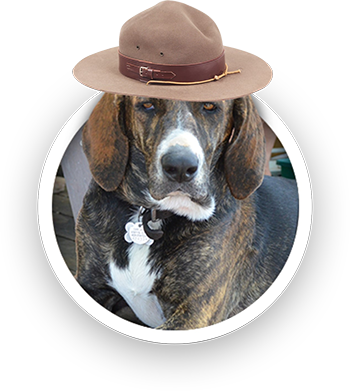
Duke here, and we are in the winter months here in California, and it is starting to get chilly for us. No matter what the temperature is outside, it's important for your vehicle's engine to remain cool, calm, and collected. Well, cool, anyway. So today we will bark about keeping your vehicle cool even when it's cold outside. Let's get barkin'!
If your vehicle has a gasoline engine, it's powered by many explosions involving spark plugs, pistons, gasoline, and air. And the by-product of all those things working together? HEAT. There's a whole cooling system to keep everything at a tolerable temperature for your engine's parts, and a key part of that is the water pump. Technically, it's pumping more than water. It should be called the "coolant" pump since the liquid circulates through the system is a mixture of water and coolant.
Basically, the water pump keeps this coolant moving through your engine, picking up the engine heat and then is pumped into the radiator, where it gets rid of that heat. When a water pump fails, the engine heat can build up. When you get a warning light on the dash (either a gauge or a light) that shows the temperature is too high, it could mean a bad water pump.
They can fail for many reasons. They have bearings that wear out, as does the seal between the pump and the engine. They're often driven by a belt or chain that can go bad. Corrosion can spell the end of a water pump, too.
If a technician determines your water pump has failed, it's time to replace it. In addition, other components of the cooling system will be inspected. The best way to avoid a water pump failure is to maintain your cooling system regularly, which includes draining and flushing the coolant.
Just like it's important for you to keep your cool, the same goes for your vehicle's engine.
My quote for the end of December 2024,
Sometimes it's better to keep your cool, remain silent and smile
Duke

Allied Auto Works
2073 Grant Road
Los Altos, CA 94024
6509687227
http://alliedautoworks.com